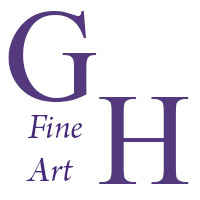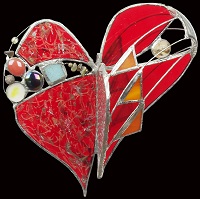-
Itzhak Perlman: Inspiration
I received the following email in 2001 from a friend published from the Houston Chronicle.
On November 18, 1995, Itzhak Perlman, the violinist, came on stage to give a concert at Avery Fisher Hall at Lincoln Center in New York City. If you have ever been to a Perlman concert, you know that getting on stage is no small achievement for him. (I have seen him play here in Rochester and was moved to tears to watch this process). He was stricken with polio as a child, and so he has braces on both legs and walks with the aid of two crutches.
To see him walk across the stage one step at a time, painfully and slowly, is an unforgettable sight. He walks painfully, yet majestically, until he reaches his chair. Then he sits down, slowly, puts his crutches on the floor, undoes the clasps on his legs, tucks one foot back and extends the other foot forward. Then he bends down and picks up the violin, puts it under his chin, nods to the conductor and proceeds to play. (I have also seen the conductor carry the violin for him, walk behind him and after Perlman is seated, hand the violin to him – a moving gesture of respect and cooperation).
But this time, something went wrong. Just as he finished the first few bars, one of the strings on his violin broke. You could hear it snap – it went off like gunfire across the room. There was no mistaking what that sound meant. There was no mistaking what he had to do.
People who were there that night thought to themselves: “We figured that he would have to get up, put on the clasps again, pick up the crutches and limp his way off stage – to either find another violin or else find another string for this one.”
But he didn’t. Instead, he waited a moment, closed his eyes and then signaled the conductor to begin again. The orchestra began, and he played from where he had left off. And he played with such passion and such power and such purity as they had never heard before. Of course, anyone knows that it is impossible to play a symphonic work with just three strings. I know that, and you know that, but that night Itzhak Perlman refused to know that.
You could see him modulating, changing, recomposing the piece in his head. At one point, it sounded like he was de-tuning the strings to get new sounds from them that they had never made before.
When he finished, there was an awesome silence in the room. And then people rose and cheered. There was an extraordinary outburst of applause from every corner of the auditorium. We were all on our feet, screaming and cheering, doing everything we could to show how much we appreciated what he had done.
He smiled, wiped the sweat from his brow, raised his bow to quiet us, and then he said, not boastfully, but in a quiet, pensive, reverent tone, “You know, sometimes it is the artist’s task to find out how much music you can still make with what you have left.”
What a powerful line that is. It has stayed in my mind ever since I heard it. And who knows? Perhaps that is the [way] of life – not just for artists but for all of us.
So, perhaps our task in this shaky, fast-changing bewildering world in which we live is to make music, at first with all that we have, and then, with what we have left.
Jack Riemer, Houston Chronicle
There are many ways to learn more about the life of Itzhak Perlman, the young Israeli, who came to New York to study at Julliard, the husband with his wife (with typical complaints about him), the father lying on the ground, playing with his children and an amazing career as a violinist and teacher and as an advocate for the needs of handicapped people. He has learned to make a life as well as music with what he had left.
It seems to me that in the confusing world we are in today, changing day by day with restrictions, trying to contain something that no one can control, we must learn to live with the uncertainty of life that is always there, but heightened now, and make music, each of us in our own way.
It is a time of great opportunity, to use our time wisely, to reflect about our lives, what is meaningful and to do with what we have. It is a time to connect in creative ways as well as in person, in limited numbers, but still connect. Technology gives us new tools to use to do that.
I am available by phone, Facetime, and with my newly installed program of Zoom, I am learning to set meetings which allow for video and audio contact of one or a group.
Stay connected! Be calm; use time wisely, love and care for self and others.
Grace
Grace Harlow Klein
Center for Human Encouragement
March 17, 2020
Contact Me
grace@graceharlowklein.com
(585) 473-2733


